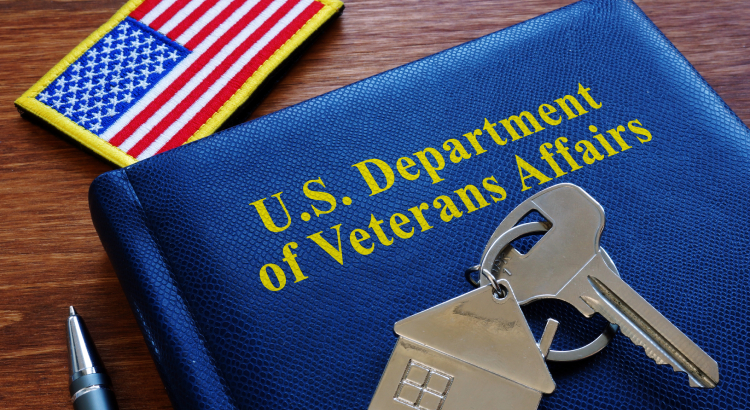FROM OUR PARTNERS

Are you a military member or veteran looking to buy a home? If so, there is a special mortgage loan known as a VA loan. These loans offer competitively low interest rates, don’t require a down payment, and have low closing costs.
Unlike most mortgage loans, VA loans are backed by the U.S. Department of Veterans Affairs (VA). VA loans are specially designed to benefit active duty and veteran military members. These loans may also benefit some surviving spouses.
To be eligible for a VA loan, you must meet these criteria:
Aside from military members and veterans, certain surviving spouses may also be eligible. If you are a surviving spouse of a veteran who died while in service or from a service-related disability and are not remarried, you are eligible for a VA loan.
Other criteria include:
Even if you don’t meet the length-of-service requirements, you may still qualify for a VA loan. For example, if you were discharged for a service-related disability, you may still be eligible.
The best way to determine your eligibility for a VA loan is to contact the VA.
Applying for a VA loan is as simple as finding a lender that offers this type of loan. Most lenders, including credit unions, traditional banks, and online banks, offer VA loans.
The process is much like applying for any other type of mortgage. You’ll fill out an application and provide information about your employment, income, assets, and other financial information.
The one unique document that you’ll also need to supply is a VA certificate of eligibility. This is provided by the Department of Veterans Affairs and is proof that you meet the requirements and are eligible for a VA loan.
As with any other kind of mortgage application, your lender will analyze your credit, debt, and income to determine if you qualify for a loan. These numbers will also determine the interest rate you receive.
The VA doesn’t have a minimum credit score for military members and veterans to be eligible for a VA loan. However, VA mortgage lenders can set their own standards for a minimum FICO score.
Most lenders are looking for a score no lower than the mid-600s. If your score is below 630, it’s best to increase it before applying for a VA loan.
Your lender will also look at your credit report to ensure you make payments on time.
The maximum debt to income ratio for a VA mortgage is 41%. However, if you have a higher DTI ratio, you can still get approved by having “residual income.” This is the money that’s left after the mortgage payment to pay for basic living expenses.
If you have a high DTI ratio, pay down debt to drop your percentage. Once you’re below 41%, you can apply for a VA loan.
Depending on your financial and credit situation, having a VA mortgage loan cosigner may improve your chances of getting approved.
Most VA loans don’t have a minimum down payment. If the home’s purchase price is higher than the appraised value, you’ll have to make up some of the difference.
You may also be required to have a down payment if the home you’re buying exceeds VA loan limits as well as the county loan limit.
When buying in a competitive area, having a down payment may be needed. If there are more buyers than sellers, you may get into a bidding situation. To show you’re a serious buyer, you’ll have to pay a deposit.
The good news is that putting some money down will more than likely reduce the VA funding fee you’ll pay at closing.
The house you buy must meet VA’s minimum property requirements. This means that the home must be structurally sound, safe, and sanitary. Some requirements to be mindful of include:
To ensure a property meets VA loan requirements, your lender will hire a VA-approved home appraiser. They will ensure the home meets minimum property requirements while also estimating the home’s market value.
With a technical refinance in 90 days for a VA loan, you will also need a VA appraisal.
Aside from VA mortgage loans, the VA also offers housing grants for service members, veterans, and members with service-related disabilities. The VA also offers home loans for Native Americans.
Disability housing grants can be used to buy or modify a home to meet a service member or veteran’s specific needs.
To be eligible for any of these grants, you must have a qualifying service-related disability. You can apply for these grants on the VA website or by downloading VA Form 26-4555. Once completed, send it to your nearest regional VA loan center.
The Specially Adapted Housing grant is used to modify a home you own or plan to buy in the future. The Special Housing Adaptation grant is available for a house that you or a family member owns or plans to purchase.
The third grant is the Temporary Residence Adaptation grant, which is used for a family member’s home that will be your temporary residence.
The Native American Direct Loan is available to help Native Americans buy, build, improve, or refinance homes. To be eligible, homes must be located on federal trust land.
The loan is available to members of specific Native American tribes and their spouses. The direct loan also applies to residents of Pacific Island territories and Alaska Native corporations.
To apply, confirm that your community is a member of the NDAL program. You can then apply for a VA certificate of eligibility in your state’s regional loan center.